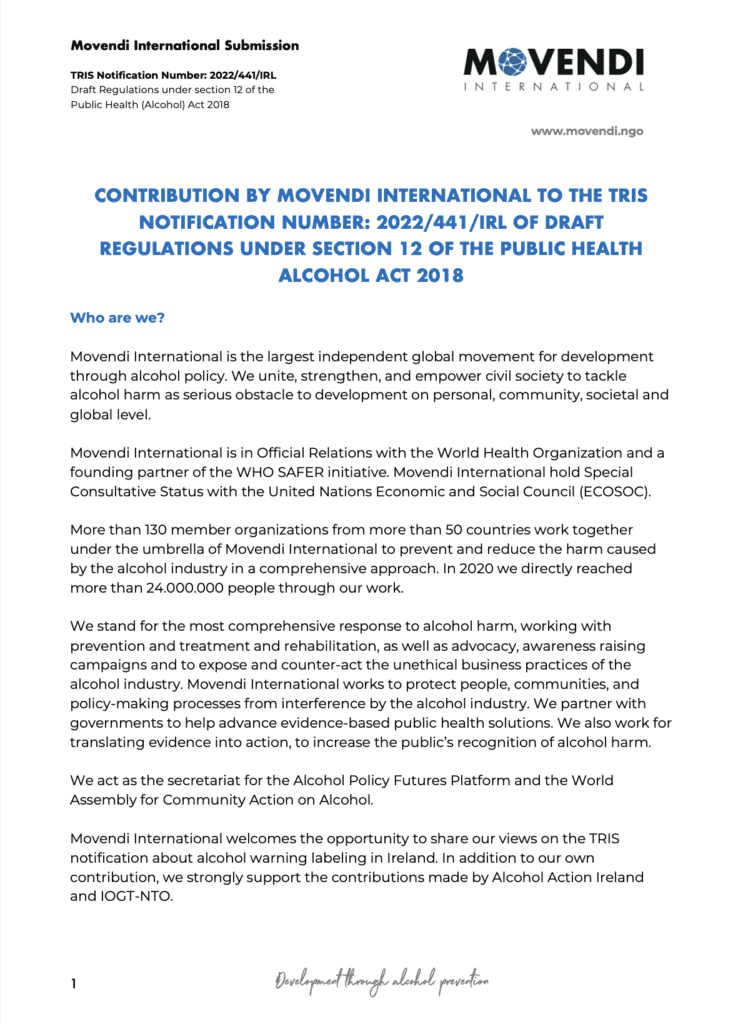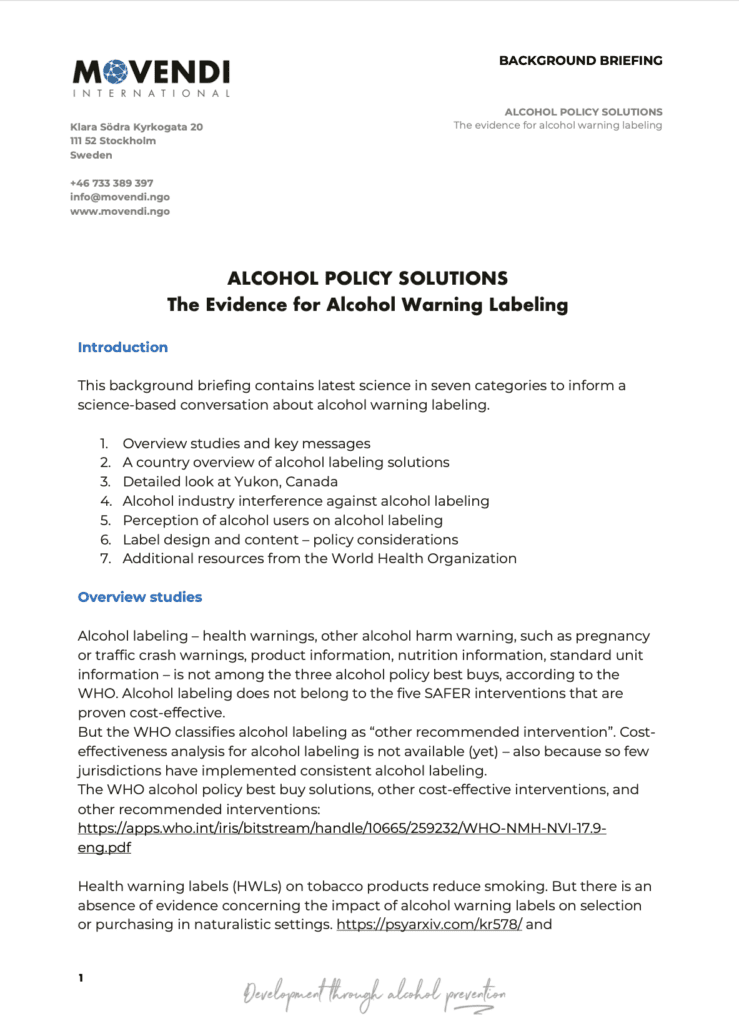Community support for evidence-based alcohol warning labels
Movendi International and our members support Health Warning Labeling on Alcohol Products in Ireland.
The Irish government has recently submitted to the European Union its proposed detailed regulations around the labelling of alcohol product with health information as provided for under the Public Health (Alcohol) Act.
These regulations are now subject to the EU’s TRIS process. This allows for submissions from stakeholders until 22nd September.
Movendi International and our member organizations have made submissions to the European Commission to support health warning labeling on alcohol products in Ireland.
Movendi International has also developed a briefing about alcohol warning labeling, compiling state-of-the-art evidence.
Best practice alcohol labeling examples
A wide base of scientific evidence highlights the importance of implementing health warning labels on alcohol products. This policy measure can increase public awareness about health harms caused by alcohol specifically about pregnancy risk, cancer risk and cardiovascular disease risk of alcohol products.
The public has a right to know about the health risks of alcohol products so they can make informed decisions about what to consume.
How alcohol warning labels work
Alcohol warning labels that follow evidence-based best practices can reduce population level alcohol use by increasing awareness about alcohol intake and risks among people.
Research has found that the best alcohol warning labels are:
- Displayed prominently on the front of product packaging,
- Include pictorial elements such as photographs or icons, and
- Rotate the content of their messages to avoid any one message becoming “stale.”
How the alcohol industry interferes against health warning labeling
Considering the effectiveness of alcohol warning labeling the alcohol industry is against this policy measure and obstructs it in many ways. Some of the alcohol industry actions against health warning labeling has been as follows:
- Lobbying against evidence-based independent mandatory alcohol warning labeling.
- Advocating to use self-regulated outdated alcohol labeling which can mislead the public.
- Thwarting independent research on alcohol warning labeling.


